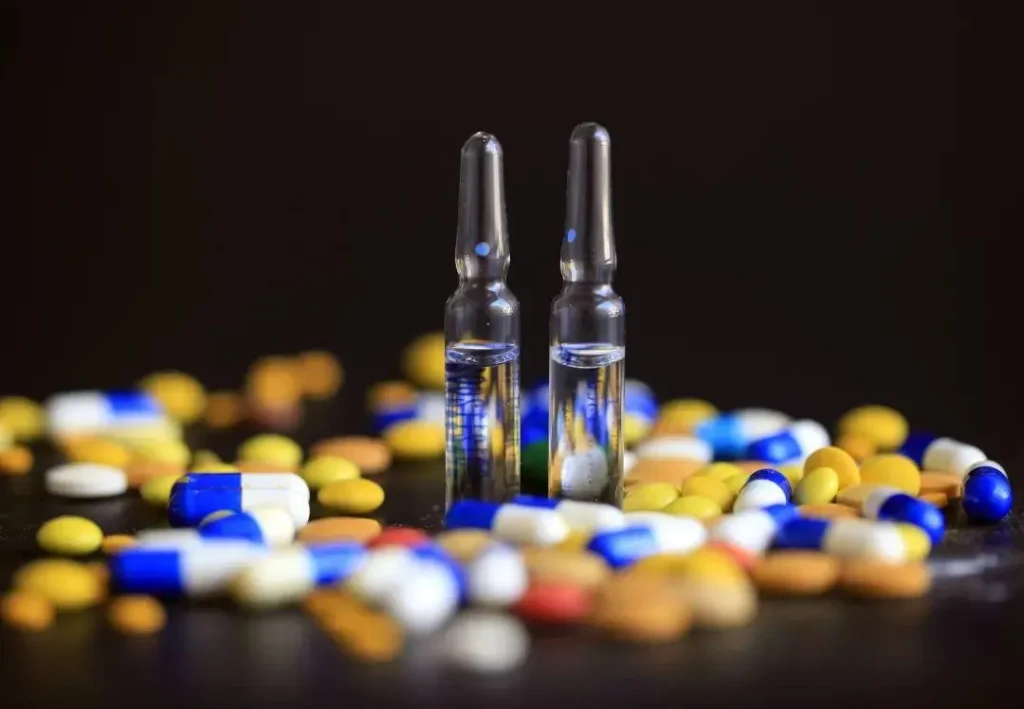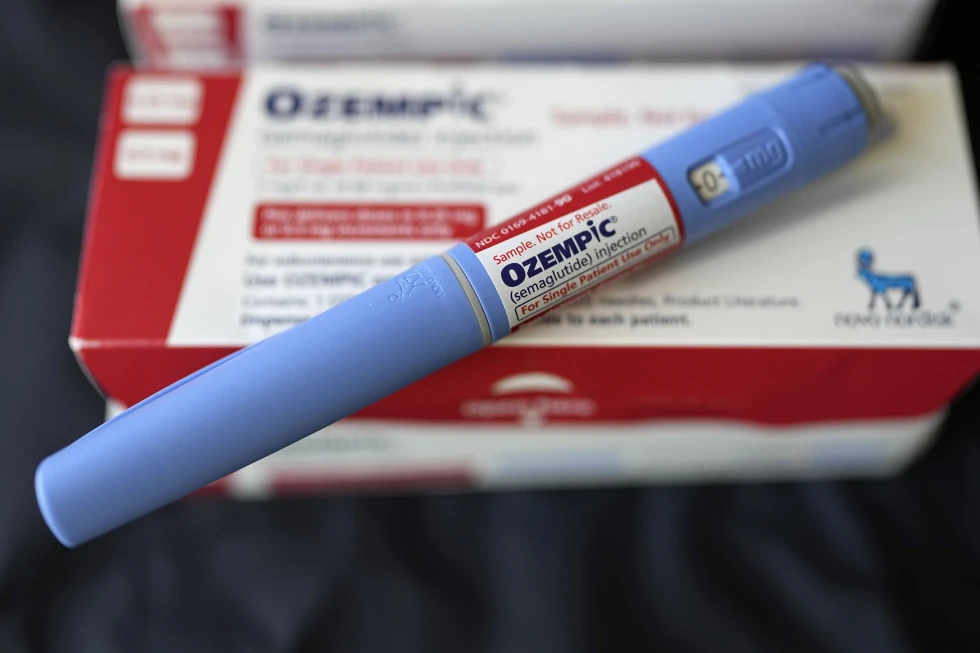The U.S. Food and Drug Administration recently conducted a preliminary review of the side effects of popular drugs used to treat diabetes and obesity.
The review found no link between these drugs and suicidal thoughts or actions. However, the agency also stated that they cannot definitively rule out the possibility of a small risk and will continue to investigate reports regarding more than a dozen drugs, including Ozempic, Wegovy, and Mounjaro.
The FDA advised patients taking these drugs to report any concerns to their healthcare providers.
This review was prompted by a federally funded study that showed people taking semaglutide, the medication in Ozempic and Wegovy, had a lower risk of suicidal thoughts compared to those taking other drugs to treat obesity and diabetes.
The review was also initiated after European regulators announced that they were investigating anecdotal reports of people taking semaglutide experiencing thoughts of self-harm.
It is important to note that the FDA’s preliminary review does not completely eliminate the possibility of a small risk of suicidal thoughts or actions associated with these drugs.
Therefore, it is crucial for patients to remain vigilant and report any concerns to their healthcare providers.
The FDA’s commitment to continuing to investigate reports regarding these drugs demonstrates their dedication to ensuring the safety and well-being of patients.
By remaining proactive in their efforts to monitor and assess the potential side effects of these medications, the FDA is taking a responsible and cautious approach to safeguarding public health.
Patients who are currently taking these drugs should take note of the FDA’s advice and communicate any concerns they may have with their healthcare providers.
Open and transparent communication between patients and healthcare professionals is essential in ensuring that any potential risks are properly addressed and managed.
In conclusion, the FDA’s preliminary review of the side effects of popular drugs used to treat diabetes and obesity has not found a definitive link with suicidal thoughts or actions.
However, the agency has acknowledged that a small risk may exist and will continue to investigate reports regarding these drugs.
Patients are advised to report any concerns to their healthcare providers and remain vigilant. The FDA’s commitment to ongoing monitoring and assessment demonstrates their dedication to ensuring patient safety.
It is important for patients to communicate openly with their healthcare providers to address any potential risks associated with these medications.
The recent report from the Food and Drug Administration (FDA) regarding the safety of GLP-1 receptor agonists has sparked a significant amount of interest and concern within the medical community and among patients.
The FDA’s preliminary evaluation has stated that there is no evidence to suggest that the use of these medications causes suicidal thoughts or actions.
This statement comes as a relief to many individuals who rely on these drugs to manage their type 2 diabetes and other related conditions.
The FDA’s evaluation involves analyzing reports related to more than a dozen drugs that have been approved since 2005.

These drugs, known as GLP-1 receptor agonists, are designed to help control blood sugar levels and reduce the risk of heart disease in individuals with type 2 diabetes.
Additionally, some of these medications are also used to aid individuals with obesity or who are overweight in their efforts to shed pounds.
The safety of medications is a critical concern for both healthcare providers and patients. The potential for adverse effects, including the risk of suicidal thoughts or actions, is a significant consideration in the decision-making process for prescribing and using these drugs.
Therefore, the FDA’s evaluation and subsequent report regarding the safety of GLP-1 receptor agonists carry substantial weight in the medical community.
The FDA’s statement that there is no evidence to suggest a link between the use of GLP-1 receptor agonists and suicidal thoughts or actions provides reassurance to healthcare providers and patients alike.
It alleviates concerns and allows for greater confidence in the use of these medications for managing type 2 diabetes, obesity, and related conditions.
However, it is important to note that the FDA’s evaluation is preliminary, and further research and monitoring may be necessary to fully understand the potential risks associated with these medications.
As with any medication, healthcare providers and patients should remain vigilant and report any adverse effects or concerns to the FDA and other relevant authorities.
In conclusion, the FDA’s recent report on the safety of GLP-1 receptor agonists provides a measure of reassurance to individuals who rely on these medications for managing type 2 diabetes, obesity, and related conditions.
While the preliminary evaluation has not found evidence of a link between these drugs and suicidal thoughts or actions, continued monitoring and research are essential to ensure the safety and efficacy of these medications.
Healthcare providers and patients should remain informed and vigilant in their use of these drugs, and report any concerns or adverse effects to the appropriate authorities.
It is reassuring to hear that the U.S. Food and Drug Administration has conducted a preliminary review of popular drugs used to treat diabetes and obesity and found no link with suicidal thoughts or actions.
This information provides a sense of relief for patients who rely on these medications for their health and well-being.
However, it is important to note that the FDA has also stated that they cannot definitively rule out the possibility of a small risk existing.
This acknowledgment highlights the need for ongoing vigilance and continued research into the potential side effects of these drugs.
It is commendable that the FDA is committed to looking into reports regarding more than a dozen drugs, including Ozempic, Wegovy, and Mounjaro, in order to ensure the safety of patients.
The recent federally funded study showing that people taking semaglutide, the medication in Ozempic and Wegovy, had a lower risk of suicidal thoughts than those taking other drugs to treat obesity and diabetes is a positive development.
This study provides valuable insights into the potential benefits of these medications and offers reassurance to patients and healthcare providers.
The FDA’s recommendation for patients taking these drugs to report any concerns to their healthcare providers is an important reminder of the collaborative effort needed to monitor and address potential side effects.
Open communication between patients and healthcare providers is crucial in ensuring that any issues are promptly identified and addressed.
The review conducted by the FDA is a significant step in the ongoing effort to prioritize patient safety and well-being.

It is encouraging to see regulatory agencies taking proactive measures to assess the potential risks associated with these medications and to provide clear guidance for patients and healthcare providers.
In conclusion, the FDA’s preliminary review of side effects from popular drugs used to treat diabetes and obesity is a positive development.
While no link with suicidal thoughts or actions has been found, the acknowledgment of the possibility of a small risk and the commitment to ongoing research underscore the importance of continued vigilance.
Patients and healthcare providers should remain vigilant and proactive in reporting any concerns, and regulatory agencies should continue to prioritize patient safety in their assessments and recommendations.
